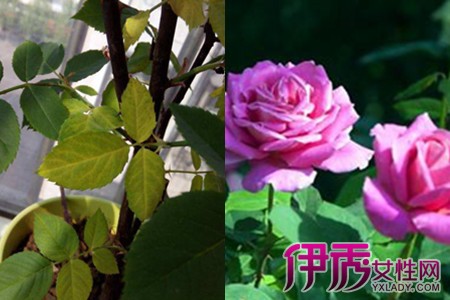Planting conditions of Yizhiren
Alpinia oxyphylla has a relatively strong medicinal effect and has a certain planting area in China. But Alpinia oxyphylla is a tropical plant that cannot be grown in many places. In fact, the yield of Alpinia oxyphylla in China is not very high, mainly because Alpinia oxyphylla has great requirements for the growth environment. So what kind of environment does Alpinia oxyphylla need to grow? The following small series will bring you the needs of Alpinia oxyphylla for soil, temperature and light. Let's take a look together!

1. Temperature
Alpinia oxyphylla is a kind of thermophilic crop. During planting, the annual average temperature should be above 20 ℃, so that the growth of Alpinia oxyphylla will not be affected. It is best to control the temperature at about 25 ℃. Especially in the flowering stage, if the temperature is lower than 20 degrees, the flowering rate will be greatly reduced, and when it is lower than 11 degrees, it will stop flowering. And if the temperature is too low in the young fruit stage, it will cause a large number of fruit drops, and the cold resistance of fruits in the middle and late stages will increase. However, if the plant is exposed to low temperature for a long time, it will cause the plant to die or even fail to sprout.
2. Light
Alpinia oxyphylla L. should not be exposed to direct sunlight during its growth, but prefer shade. Shade environment is an important factor to ensure the normal growth of Alpinia oxyphylla L. When planting, we should choose a place with a certain shade, and intercropping can be carried out in various trees. However, the light requirement of Alpinia oxyphylla will change with its growth. Before flowering, the shade degree in the forest should be kept at about 75%, and after maturity, the shade degree should be appropriately reduced to 65%. At this time, if too much shade, it is easy to cause excessive growth of branches and leaves, reduction of tillers, and reduction of fruit yield. And we also need to control the shade according to seasonal changes to ensure the healthy growth of Alpinia oxyphylla.
3. Humidity
Alpinia oxyphylla likes to grow in a humid environment, with air humidity as high as 88% and soil moisture content around 28%. However, there should not be ponding in the garden, especially in the flowering and fruiting period of Alpinia oxyphylla. If there is too much ponding, it is easy to cause rotten flowers, rotten fruits and so on. Inhibit flower bud differentiation of Alpinia oxyphylla and reduce flowering rate. However, if it is exposed to drought for a long time, the growth rate of the plant will become extremely slow, and when it is severe, it will stop growing and gradually die. Moisture is a key factor in determining the yield of Alpinia oxyphylla, so make sure there is enough water around the planting area for irrigation.
4. Soil
Alpinia oxyphylla has strong adaptability. In the wild state, the requirements for soil are not very strict. Most of the soil can develop normally except that it cannot grow on extreme soil such as saline-alkali land and sandy land. However, if you want to increase the yield of Alpinia oxyphylla and enhance the growth of Alpinia oxyphylla, you still have to choose soft, humus-rich and strong soil for water and fertilizer conservation. Control the soil at about 5, avoid not to choose soil erosion serious, potholes and barren clay, the growth of Alpinia oxyphylla is very unfavorable.
In addition, the air volume will also have a certain impact on the growth of Alpinia oxyphylla. When the wind speed is too high, it will increase the evaporation rate of water and destroy the water balance in Alpinia oxyphylla. In addition, the wind resistance of Alpinia oxyphylla is relatively poor. If it encounters strong wind, it is easy to lodge. Therefore, it is necessary to improve the wind resistance of Alpinia oxyphylla when planting, and try to plant it together with shelter forest to reduce the threat of wind. Today's introduction is here, this article is for reference only, thank you for reading and support.
- Prev

What to do if the rose leaves turn yellow? I'll teach you how to deal with it easily.
The leaves of Chinese roses are very yellow. If the leaves go on like this for a long time, the whole leaves will fall, and the rose will not blossom at this time. These phenomena show that the rose flower is no longer very healthy, so it is necessary to think of some measures to save this kind of flower in an urgent time.
- Next

Planting techniques of Yizhiren
Planting techniques of Yizhiren
Related
- Fuxing push coffee new agricultural production and marketing class: lack of small-scale processing plants
- Jujube rice field leisure farm deep ploughing Yilan for five years to create a space for organic food and play
- Nongyu Farm-A trial of organic papaya for brave women with advanced technology
- Four points for attention in the prevention and control of diseases and insect pests of edible fungi
- How to add nutrient solution to Edible Fungi
- Is there any good way to control edible fungus mites?
- Open Inoculation Technology of Edible Fungi
- Is there any clever way to use fertilizer for edible fungus in winter?
- What agents are used to kill the pathogens of edible fungi in the mushroom shed?
- Rapid drying of Edible Fungi

